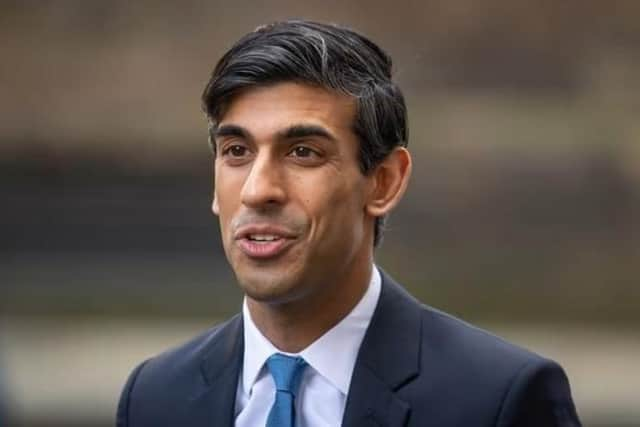Nearly half of homes in Bucks ineligible for Rishi Sunak's Council Tax rebate
and live on Freeview channel 276
Nearly half of the households in the Bucks Council area won't qualify for the new Council Tax rebate announced last week (Thursday 3 February).
Chancellor Rishi Sunak announced a new scheme designed to help people through the energy crisis.
Advertisement
Hide AdAdvertisement
Hide AdQualifying households will receive an additional £150 rebate from the government, excluded homes will be fighting out for an additional £144 million government grant.


But, that equates to just £28 per household, analysis from National World shows.
The £150 rebate will given out in April and does not need to be repaid unlike the £200 energy bill discount announced at the same time by the chancellor.
Households in bands A to D will receive the Council Tax rebate.
Advertisement
Hide AdAdvertisement
Hide AdWith this scheme being aimed at lower- and mid-value homes, certain areas like London saw far fewer residents qualifying for the boost.
Bucks is one of these council regions where many households were left out, 45.1% of homes in the region did not qualify, equating to 107,031 properties.
Only 24 council areas had a larger portion of households missing out on Chancellor Sunak's rebate.
The City of London had the largest number of ineligible homes with 76.2% of households not qualifying.
Advertisement
Hide AdAdvertisement
Hide AdIn contrast 95.9% of households in Sandwell in the West Midlands qualified the most of any local authority area.
On the same day as Chancellor Sunak's announcement, Ofgem revealed average energy bills would rise by nearly £700 per year from April.
The IPPR think-tank called the measure “poorly targeted”, saying two million of the poorest people would miss out on the automatic help and would instead have to apply for a handout from the £144 million fund.
It said it feared those on low incomes excluded from the automatic rebates would be “reliant on a discretionary scheme for support which could be overwhelmed”.
Advertisement
Hide AdAdvertisement
Hide AdNational World discovered as well as expensive homes, 660,000 households which don’t currently pay council tax, such as student households will be left out.
However, people living in band A to D homes who get local council tax support, where their bills are discounted or written off by the local council, should still qualify.
Second homes and empty homes are ineligible for the payouts.
To help anyone struggling with their bills who doesn’t qualify for the help, Chancellor Rishi Sunak announced a hardship fund of £144 million, to be distributed by local authorities.
Advertisement
Hide AdAdvertisement
Hide AdHe told the Commons this would “help those lower-income households who happen to live in higher council tax properties, and households in bands A to D who are exempt from council tax at all”.
The devolved administrations of Scotland, Wales and Northern Ireland are receiving around £715 million funding to deliver help in these nations.
What is the criticism of the scheme?
England’s council tax system has long faced criticism.
The amount people pay is determined not by their income but by the value of their property more than 30 years ago, in 1991.
Similarly, the Treasury’s decision to base its support on council tax bandings has come under attack.
Advertisement
Hide AdAdvertisement
Hide AdThe IPPR think-tank has called the scheme “poorly targeted”.
It estimates that two million of the poorest people would miss out on the automatic help and would have to apply for discretionary support, while 44 per cent of the richest will benefit from the tax cut.
Responding to National World's analysis, its senior economist Henry Parkes said: "Thirty percent of households in London will be excluded from automatic support, by far the highest rate in England, despite the fact London has above average fuel poverty and the highest levels of relative poverty.
“Support should be distributed on the basis of need and incomes through universal credit, not historic house valuations which may not relate to the financial circumstances households actually face, leaving them reliant on a discretionary scheme for support which could be overwhelmed."
Advertisement
Hide AdAdvertisement
Hide AdShadow chancellor Rachel Reeves told the House of Commons that the scheme “will mean that many of the poorest households receive no extra support, while some of the richest do”.
Labour has instead called for an extension to the existing Warm Homes Discount scheme to include more lower-income households.
What is the Government’s response?
A spokesperson for the Department for Levelling Up, Housing and Communities said it would be publishing further information on the council tax rebate shortly.